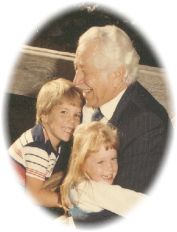

IN HERBAL PREPARATIONS
KNOWN HERBAL FORMULAS OF VALERIAN
by Melanie Purcell

Valerian is a popular herb and is used worldwide in a variety of marketed herbal formulas. Some of these formulas focus on and contain only Valerian. Other formulas consist of several herbs besides Valerian.
Dr. Christopher alone created several formulas using Valerian. He had great success treating insomnia and nervous tension with his Nerve Herbal Food Combination, which besides Valerian included black cohosh, capsicum, hops flowers, lobelia, skullcap, wood betony, and mistletoe. His Anti-Spasmodic tincture for instances of convulsions, cramping, fainting, hysteria, sore throats, etc. also contains Valerian. In addition to Valerian, the Anti-Spasmodic tincture consists of skullcap, lobelia, cayenne, skunk cabbage, myrrh gum, and black cohosh.
Other formulas include The Formula for Relief of Minor Pain created by Dr. Christopher. This formula consists of Valerian and wild lettuce and can be taken internally or applied externally.[i] Finally, Dr. Christopher's Emotional Clarity Formula not only contains Valerian extract but also skullcap, Oregon grape root, barley grass, alfalfa, Kumut, St. John's Wort extract, mullein leaf, lobelia, gotu kola, gingko extract, sarsaparilla, and dandelion.
In the book, The School of Natural Healing, there are several herbal recipes that include Valerian in addition to the Dr. Christopher formulas that have already been mentioned. Another formula for cramping and convulsions is one of ginger syrup and anise, with the fluid extracts of Valerian, wild yam, and blue cohosh. An additional antispasmodic recipe is given containing powders of Valerian root, skullcap, skunk cabbage, lobelia, cinnamon, and cayenne. This book shares Dr. Shook's formula for high blood pressure of Valerian root, licorice root, buckthorn bark, Culver's root, Linden flowers, rue, and goldenrod. A recipe for a nerve tonic includes Valerian, skullcap, catnip, coriander, and cayenne.
Two great recipes for symptoms of insomnia are provided with Valerian and skullcap. One formula adds mistletoe and the other uses additional herbs of vervain and wood betony. This publication includes a combination for dizziness of Valerian, tansy, caraway, and rue.
Dr. Christopher also lists two formulas for epilepsy using Valerian. The first formulas given contains: Valerian, catnip, horehound, skullcap, wood betony, peony root, and pellitory-of-the-wall. Besides Valerian the second recipe includes: mistletoe, shavegrass, yellow bedstraw, and wormwood.
Formula 303 is another of the many marketed products that contain Valerian as its main ingredient, as well as passion flower and magnesium. Studies have shown that using Valerian with St. Johnís Wort was an effective alternate to taking Valium. Adding lemon balm to the combination of Valerian and St. John's Wort is popular with many herbalist and is said to be highly effective. The use of Valerian with Hops also provides a strong, sedating reaction. Master Herbalist, Richard Schulze suggests using a combination of Valerian, Passion Flower, Hops, and Lobelia when nerves are feeling frayed.
Valerian has been used for centuries and remedies that have been handed down for generations continue to be used. One example would be using Valerian and cayenne to sooth an irregular heartbeat. A well documented old-fashioned cough remedy is made by taking a decoction of licorice, anise seed, and raisin and pouring it over Valerian. Other examples include using the tea of Valerian externally, or applying the fresh, bruised Valerian root to heal any existing external skin eruptions.[ii]
I was helping my grandmother go through old magazines and books last year for fall cleaning when I came across two sheets of herbal formulas. These sheets are now yellowed with age and contain seventy combinations for herbal remedies. My grandmother is now in her nineties and cannot recall where she found the recipes but there are several that include Valerian. The combinations that used Valerian were for a variety of conditions including: acne, arthritis, colds, colic, fatigue, headache, heartburn, nervous tension, pain, and ulcers.


